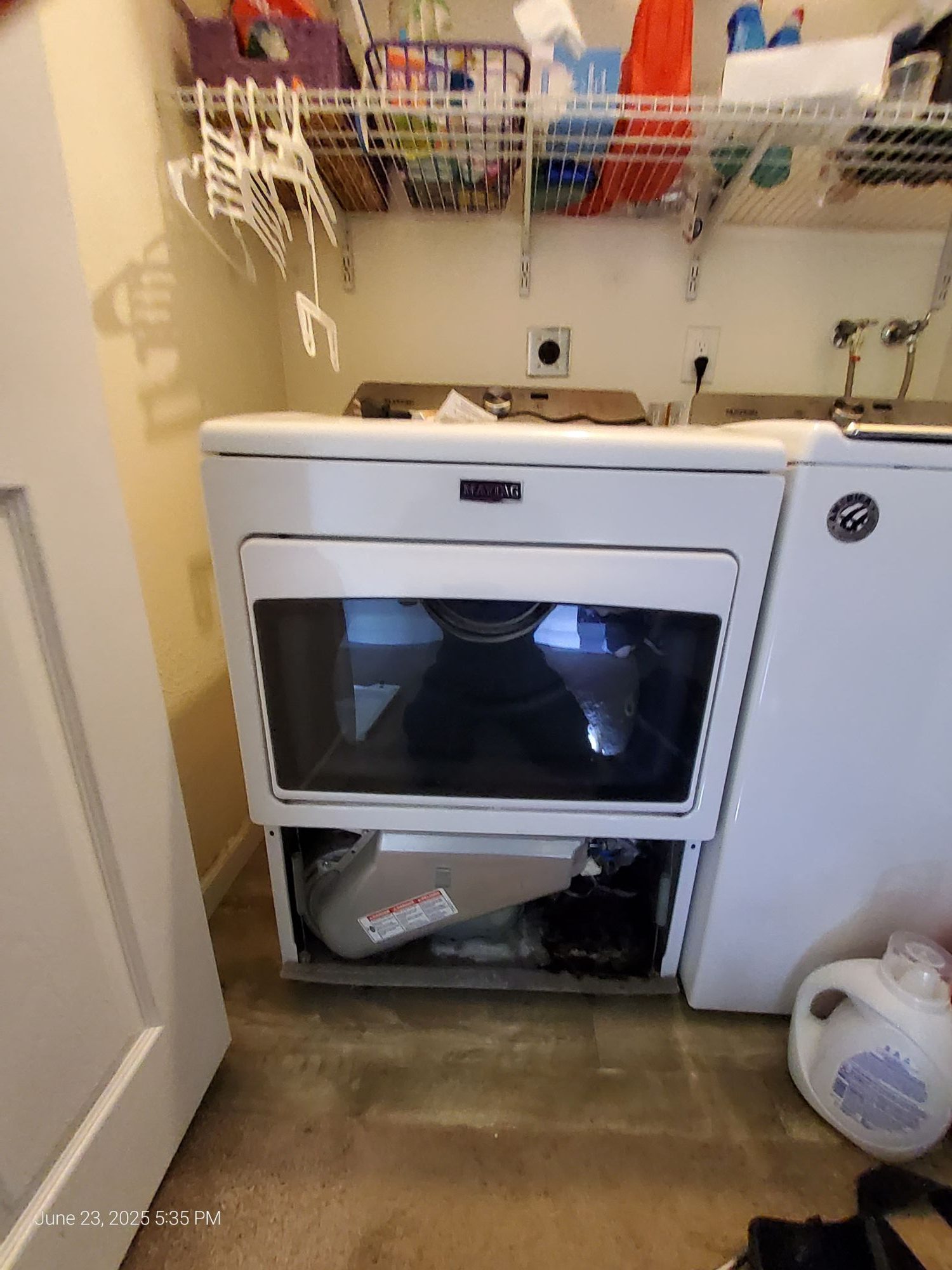A washing machine’s spin cycle is designed to remove as much water as possible from clothes before they head to the dryer or the clothesline. When your laundry comes out excessively wet—even after a full spin cycle—it’s not just an inconvenience, it’s a signal that something is wrong inside the machine. Among the most common causes of this problem are a damaged motor coupler or a worn drive belt.
Understanding these issues can help you identify the problem early and prevent further damage to your washer or your clothes.
What the Spin Cycle Should Do
The spin cycle uses high-speed rotation to extract water from your laundry. The motor engages the drive system, which spins the inner drum at rapid speeds. When functioning properly, this leaves your clothes damp, not soaking.
However, if something in the motor or drive system isn’t working as it should, the drum won’t spin fast enough—or at all—leading to poorly spun clothes that feel almost as wet as when the wash cycle ended.
Damaged Motor Coupler
The motor coupler connects the washer’s motor to the transmission. It’s a small, inexpensive part made of plastic and rubber, designed to break under stress to protect the motor and transmission from damage.
Over time, or due to excessive loads, this coupler can wear out or snap. When this happens, the motor may run, but it can no longer transfer motion to the drum. This results in the drum not spinning properly or at all, leaving clothes too wet.
Signs of a damaged motor coupler:
- Washer fills and drains normally, but doesn’t agitate or spin.
- Motor sounds like it’s running but the drum doesn’t move.
- You may hear a clicking or grinding noise when the washer tries to spin.
A broken motor coupler won’t fix itself—it needs to be replaced. Continuing to run the washer in this condition can cause more extensive damage.
Worn Drive Belt
If your washing machine uses a belt-drive system (more common in older or top-load models), the drive belt is responsible for spinning the drum. Over time, belts can loosen, fray, crack, or stretch, reducing their grip and power transfer ability.
When the belt is worn, the drum may spin sluggishly or not at all, resulting in wet laundry.
Signs of a worn drive belt:
- The washer makes a squealing or thumping noise during the spin cycle.
- The drum spins inconsistently or slowly.
- Visual inspection reveals cracks, fraying, or slippage.
Like the motor coupler, the drive belt is a wear-and-tear component and should be replaced at the first sign of failure to avoid damage to the motor or drum bearings.
Why Fixing the Problem Matters
Leaving your washer in a state where it doesn’t spin correctly can lead to several other issues:
- Mold and mildew: Wet clothes left too long can develop odors and bacteria.
- Increased drying time: Your dryer will have to work overtime, wasting energy and potentially causing wear on clothes.
- Worsening mechanical failure: A minor repair today could prevent a costly overhaul tomorrow.
Prompt attention to these issues not only extends the life of your washer but also protects your wardrobe and your energy bills.
DIY or Professional Repair?
Some homeowners with mechanical experience might attempt to replace a drive belt or motor coupler on their own. However, for most people, the internal design of a washing machine is complex and can be difficult to access without proper tools and knowledge.
Incorrect installation can result in further damage or even safety hazards.
That’s why it’s always recommended to call in a professional appliance repair service. A trained technician can diagnose the issue quickly, source the correct part, and install it correctly—restoring your machine to full functionality without the guesswork.
Call the Experts at Home Appliance Service Center
If your washing machine is leaving your clothes soaking wet after every cycle, it’s time to take action. Don’t let a worn drive belt or broken motor coupler compromise your daily routine.
At Home Appliance Service Center, we specialize in fast, reliable washer repairs. Our experienced technicians will quickly diagnose the problem and provide a lasting solution—getting your laundry routine back on track with minimal disruption.
We service all major washer brands and models, and we pride ourselves on professional, friendly service.
Book your washer repair today—because your time and comfort matter.
Contact Home Appliance Service Center now for expert washing machine repair. Your appliances deserve the best care—so do you.
Contact us
 619-928-5000
619-928-5000  Request Service
Request Service 
